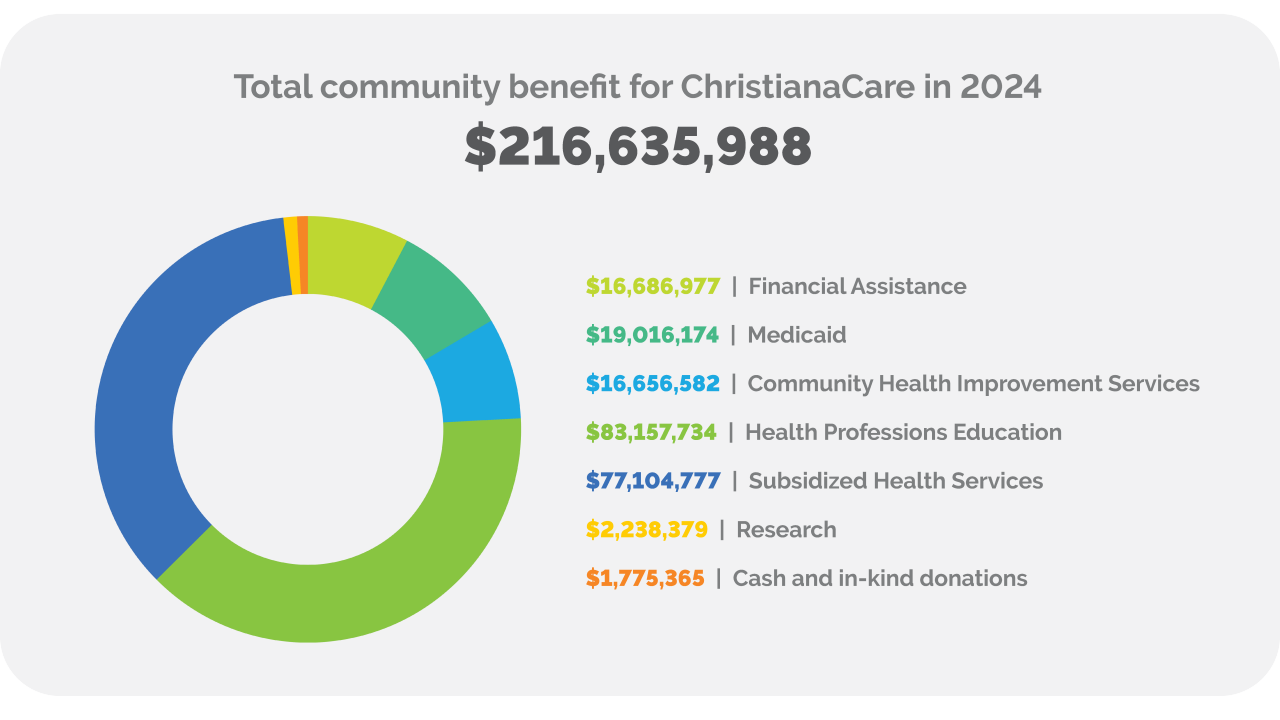Login
Who We Are
Community Benefit
ChristianaCare exists to take care of our neighbors.
Our Impact to the Community
At ChristianaCare, our mission is simple: we take care of people – all people.
We do that by making it possible for our neighbors to access high-quality, safe and affordable care throughout the communities we serve.
Guided by our values of love and excellence, our nearly 14,000 caregivers serve together in our hospitals, practices and other sites across Delaware, Maryland, Pennsylvania and New Jersey.
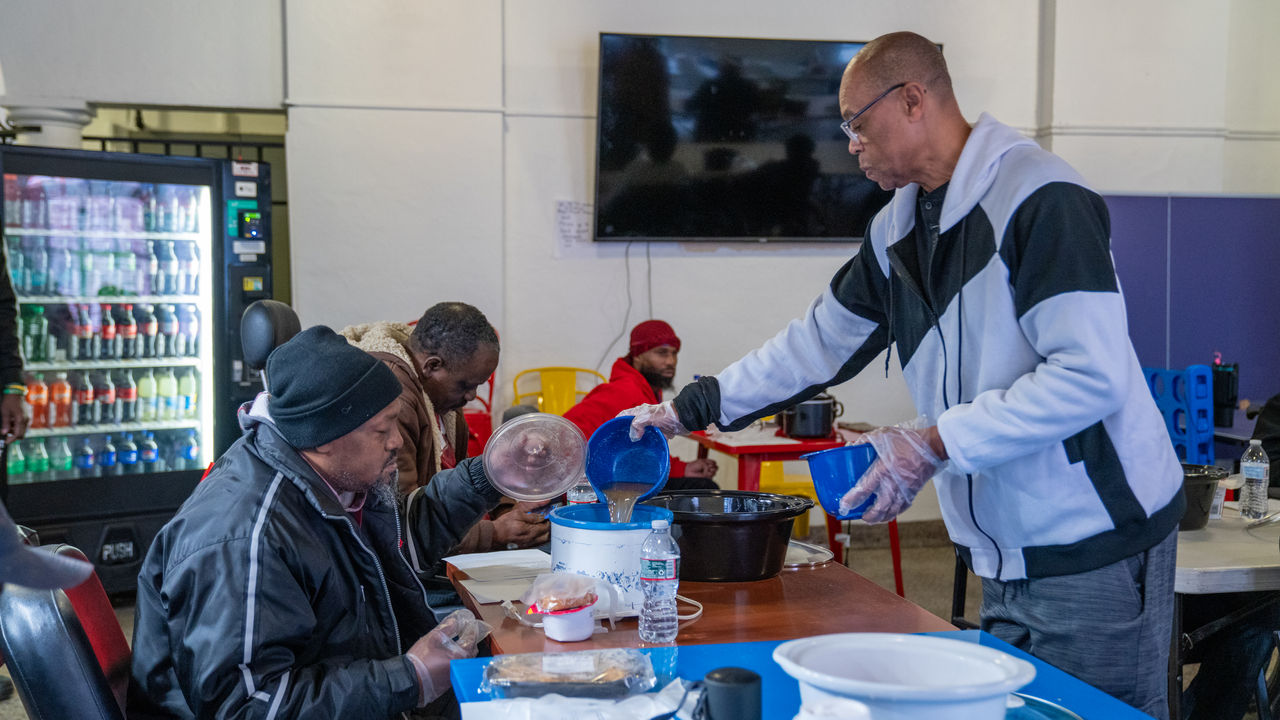
ChristianaCare’s 2024 Community Impact: $216,635,988
Accountable Care Organization
ChristianaCare’s Delaware Medicaid Partners Accountable Care Organization (ACO) combines medical care with social support in recognition of the close relationship between health and social needs. The ACO is one of four authorized by the State of Delaware and the only one to voluntarily accept downside financial risk since launch.
According to the most recent data available, ChristianaCare’s ACO reduced health care spending by $6.2 million in 2023 while improving care for nearly 30,000 Medicaid beneficiaries in Delaware, including approximately 8,000 children.
FY2024 Community Benefit Report
- Community Assessment
- Addressing Needs
- By the Numbers
Every three years, ChristianaCare undertakes a comprehensive Community Health Needs Assessment (CHNA) to align our goals with community needs in New Castle County. We gather current statistics and qualitative feedback from our community partners and neighbors of the key health issues facing our community and residents.
Visit here to see our assessments, dating back to 2013.
ChristianaCare’s 2022 Community Health Needs Assessment identified the following as significant needs in our community:
Provider Access Challenges in New Castle County
Medically Underserved Areas
There are several census tracts that have been designated as medically underserved areas.
Medically underserved areas, designated by the federal Human Resources Services Administration (HRSA), are geographic locations and populations with too few primary care providers, high infant mortality, high poverty or a high older adult population.
In New Castle County, these areas are located near our Wilmington Campus and also in the northeast portion of the county.
Health Professional Shortage Area
HRSA can also designate a geographic area as a health profession shortage area if there is an identified shortage of primary medical care, dental care, or mental health care professionals.
The low-income populations of Wilmington, Stanton, and Newark have been designated as health professional shortage areas for primary care, dental health and mental health. Correctional centers and Federally Qualified Health Center locations in New Castle County have also been identified as health professional shortage areas.
More information about medically underserved areas, health professional shortage areas and access challenges can be found in our Community Health Needs Assessment.
Identifying and Addressing Health Gaps
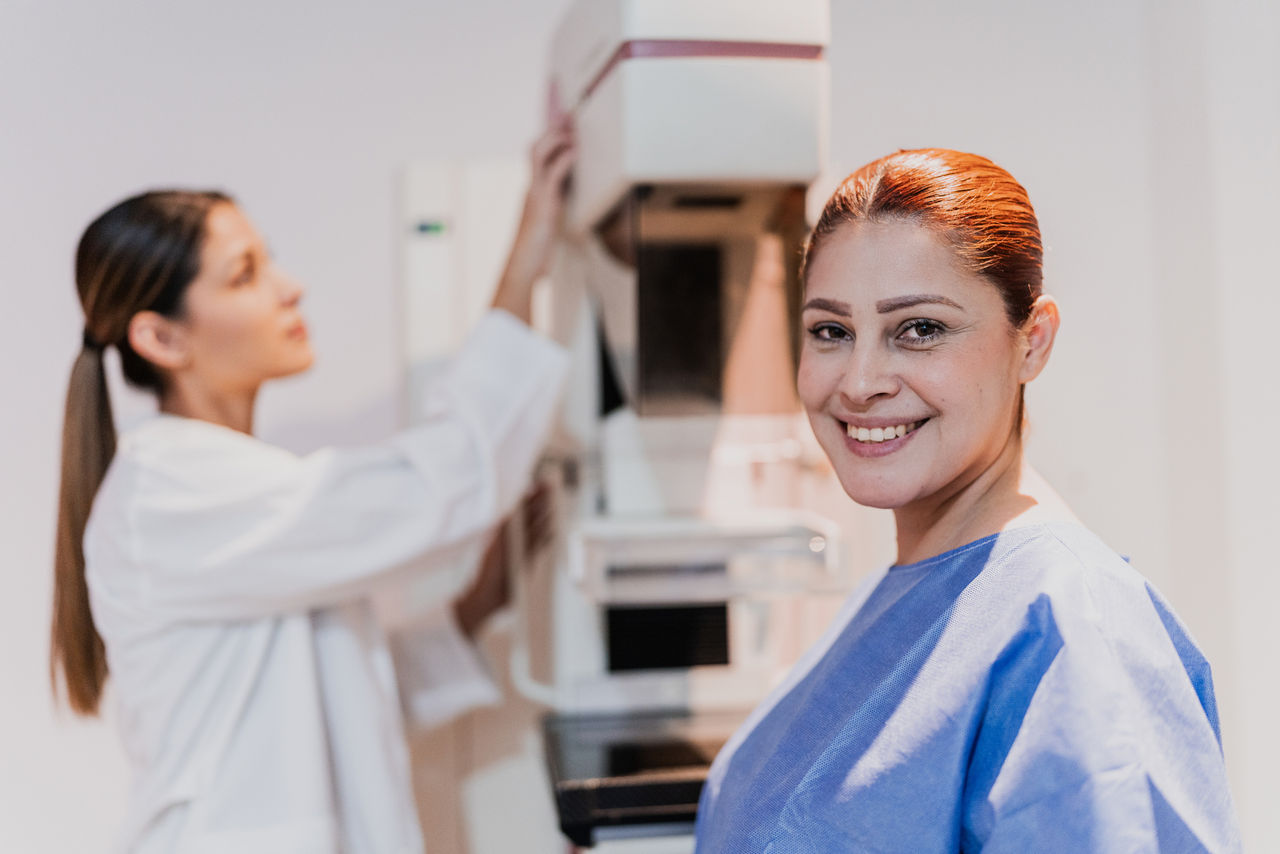
ChristianaCare is committed to improving the health of our community and increasing access to care while improving the experience, care delivery and health outcomes for our patients and their families.
In fiscal year 2024, ChristianaCare became one of the first health systems to receive provisional health equity accreditation from the National Committee for Quality Assurance (NCQA).
Accreditation focuses on improving internal culture, data collection and the identification of opportunities to reduce health inequities and improve care.
Addressing Gaps in Health Care
We have identified gaps in health care among our parents in hypertension, preeclampsia, cancer, and surgical outcomes. We committed to addressing these in fiscal year 2024 with the formation of strategic aspiration workgroups focused on each area. The following interventions are being implemented:
- Hypertension: nurse-led home-based blood pressure monitoring.
- Preeclampsia: aspirin adherence education with multilanguage education materials.
- Surgical outcomes: cultural navigation program for bariatric surgery patients.
- Cancer: standardization of yearly breast cancer screening at age 40.
Our intention is to create a portfolio with additional interventions and outcomes in the coming years.
Access to Health Services
Wilmington Campus Dental Clinic
For decades, ChristianaCare’s dental clinic has provided comprehensive care to patients who are uninsured, underinsured or who have Medicaid. There were 12,558 visits to the Dental Clinic and Oral Surgery Resident Clinic in fiscal year 2024.
Health Guides
Working at Wilmington Hospital and in two primary care practices, our health guides participated in 4,273 patient encounters and assisted patients in applying for $2 million in financial assistance.
Mobile Health Services
Two mobile health services vans supported by a $1 million investment from Barclays travel the state, tallying 8,300 miles on the roads as they provided adult care, women’s health, pediatrics, vaccines and more. There were 364 patients visits on the vans in the New Castle County locations, including 78 new patients.
Community Health Workers
Community health workers are used to address our prioritized areas of need. They connect patients to care, work to address patients’ social needs and help patients identify and achieve patient-centered goals.
Hope Center Partnership
ChristianaCare operates an on-site primary care office as well as a 36-bed medical respite program at the New Castle County Hope Center, an emergency shelter. ChristianaCare community health workers also assist these patients to address their social and health needs. In FY2024, forty-one patients were served by this program.
School-Based Health Centers
ChristianaCare operates 26 school-based health centers (SBHCs) throughout New Castle County in elementary, middle, and high schools. In FY2024, ChristianaCare began operating an additional three new SBHCs in Brookside, Richardson Park, and Silver Lake elementary schools. SBHCs provide convenience and the opportunity to address health issues at the earliest and most preventable stages. In fiscal year 2024, our school-based health centers had 27,509 student visits.
Additionally, 22 of the 26 SBHCs are also served by embedded ChristianaCare community health workers who connect students and their families to needed medical services and community resources. In FY2024, 670 students were assisted by a Community Health Worker.
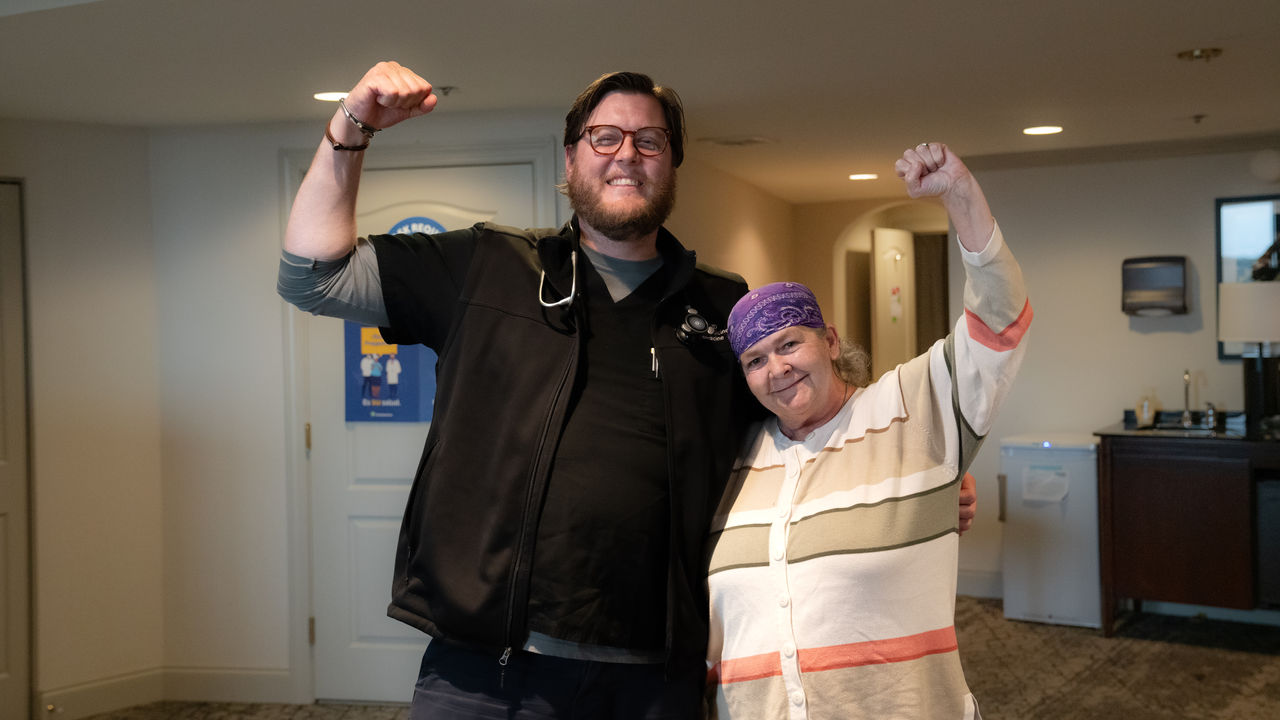
Support for Chronic Health Conditions
Primary Care Community Health Worker Program
Primary Care community health workers serve patients in practices with Medicaid, Medicare or uninsured and living with diabetes, hypertension, and/or high emergency department utilization or at least one inpatient stay. In FY2024, ChristianaCare enrolled 266 participants.
Women’s Health Community Health Worker Program
Women’s Health community health workers work with pregnant and postpartum patients. Eligible patients are those with Medicaid or who are uninsured and live with a chronic disease, mental health and/or substance use issue(s), late/no entry to prenatal care, history of poor birth outcomes, a BMI at/above 30, and/or are at-risk for birth defects.. ChristianaCare enrolled 129 patients in the last fiscal year.
Delaware Food Farmacy
The Delaware Food Farmacy (DFF), offered in partnership with Lutheran Community Services, is a food as medicine community health worker program for primary care patients with certain chronic conditions and food insecurity. In FY2024, ChristianaCare enrolled 87 participants in Delaware Food Farmacy and provided food for 224 community members (the participants’ households are also provided food). In January 2024, ChristianaCare expanded Delaware Food Farmacy into Women’s Health.
Healthy Food Delivery
ChristianaCare created the Healthy Food Delivery program as an intervention for primary care patients who screen positive for food insecurity and have certain chronic conditions. Bi-weekly medically tailored groceries are delivered to patients’ homes by partnering organization Hungry Harvest. In FY2024, ChristianaCare enrolled 24 participants and provided food for 56 community members (the participants’ households are also provided food).
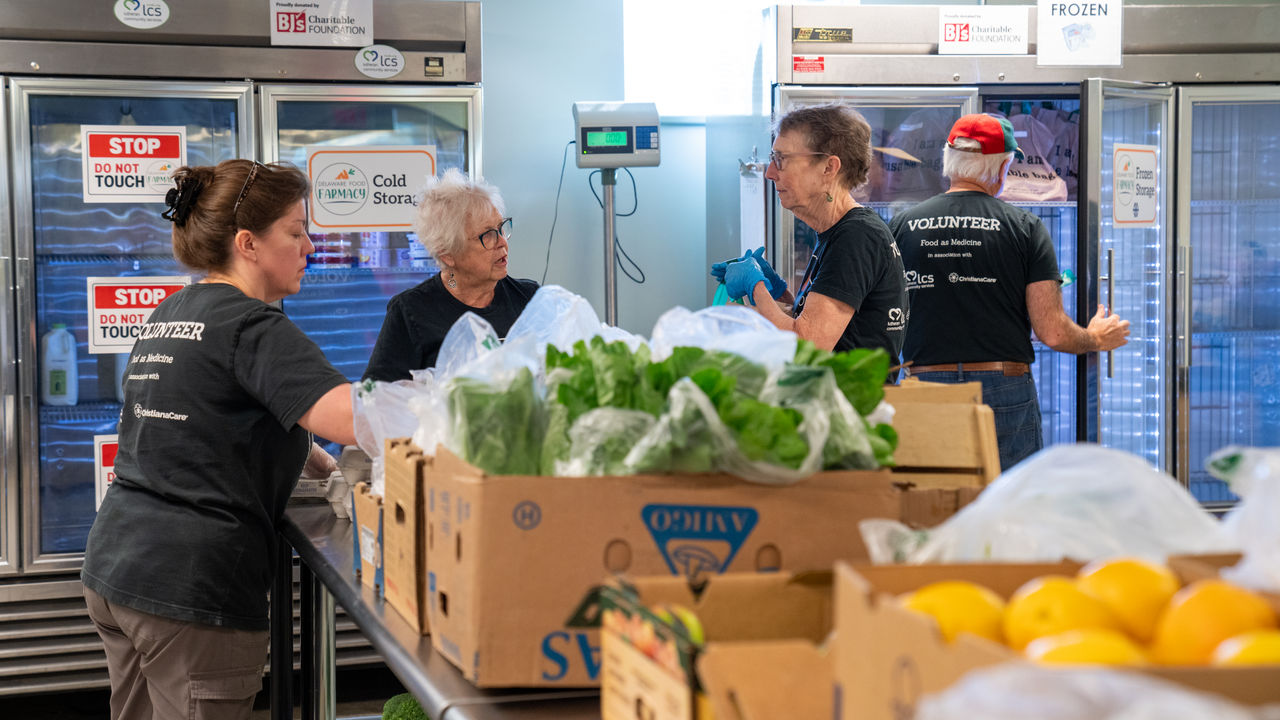
Support for Maternal and Child Health
Home Visiting Community Health Workers Program
Offered in partnership with the Delaware Division of Public Health, this program addresses infant mortality in targeted high-risk zip codes through connections to health care, social services, home visiting and educational programs. In FY2024, the Home Visiting community health workers served 134 individuals.
Healthy Women Healthy Babies Program
Partnering with the Delaware Division of Public Health, this program focuses on preconception, prenatal and inter-conception care. In FY2024, HWHB enrolled 1,989 patients.
Alliance for Adolescents Pregnancy Prevention
Through this program, Delaware youth gain the skills and information to help avoid or reduce involvement in high-risk behaviors. In the last fiscal year, caregivers educated 1,268 youth from 30 schools.
Women’s Health Delaware Food Farmacy
Women’s Health Delaware Food Farmacy partners with Lutheran Community Services to provide our pregnant patients and their family members with medically tailored groceries that are high in micronutrients critical for a healthy pregnancy. Community health workers also provide nutrition assessment, education and ongoing support for dietary behavior changes and achieving goals for a healthier pregnancy. In FY2024, ChristianaCare enrolled 60 patients and provided food for 203 community members (the participants’ households are also provided food).
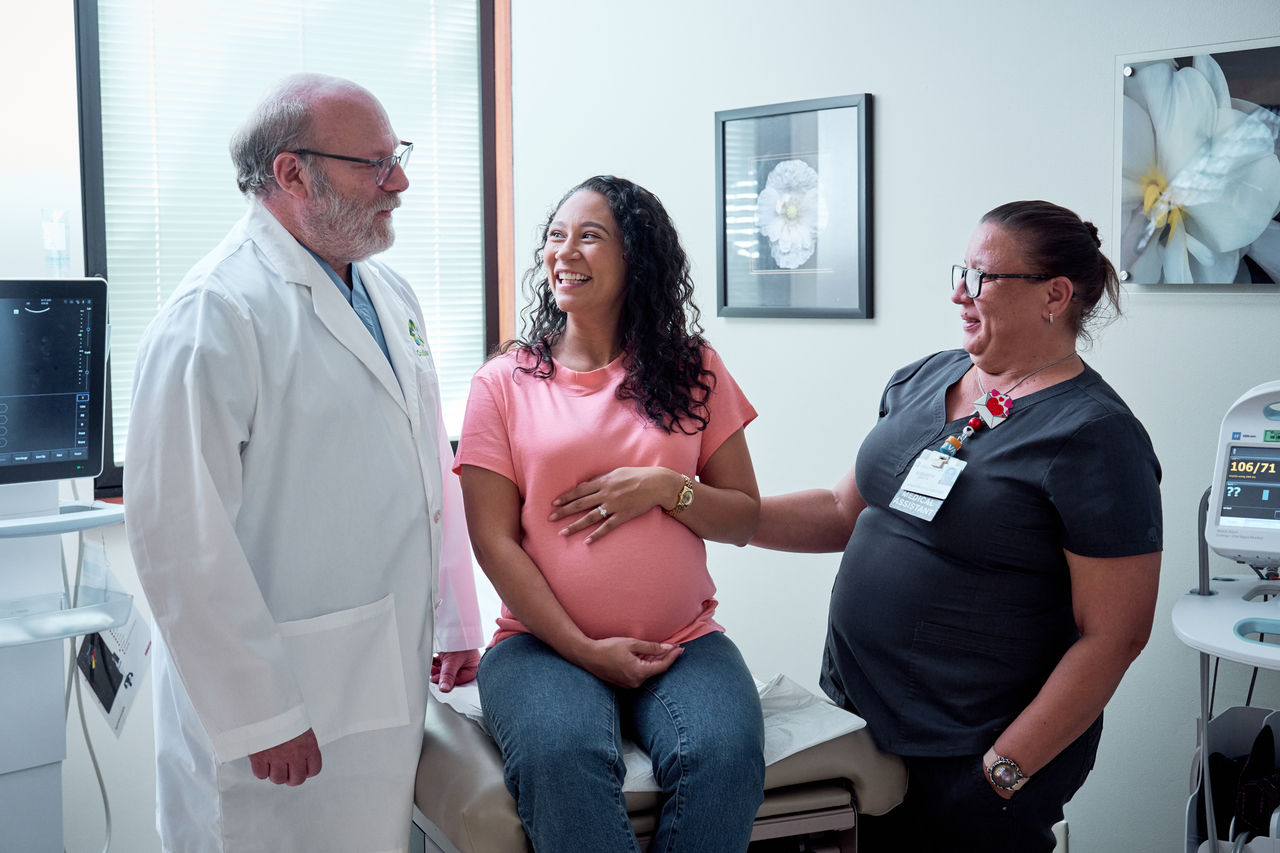
Support for Mental Health and Substance Use Disorders
Behavioral Health Community Health Workers program
This program serves adults, children and adolescents in outpatient behavioral health services, and participants in Project Recovery, an outpatient program offering treatment for substance use disorder. In FY2024, 118 patients participated, including 39 families of youth receiving outpatient behavioral health services.
Project Engage
Offering early intervention and referral to substance use disorder treatment program this program uses peers in recovery to engage with inpatients and patients in the Emergency Department struggling with substance use disorder. Peers connect these patients to treatment programs and other community resources. These peers had 2,940 engagements with patients and made 1,781 referrals to treatment in the last fiscal year.
Police Department Partnerships
ChristianaCare has implemented partnerships with New Castle County Division of Police, Newark Police Department and Wilmington Police Department to divert individuals away from the criminal justice system and emergency departments when appropriate and connect individuals to care in the community.
Caregivers from the Community Health team work in tandem with officers – and in some cases, respond together – with the shared goal of reducing the overuse of needed emergency resources and helping people connect with the care they need.
Community SOS
ChristianaCare’s Community Substance Overdose Support (SOS), created in partnership with New Castle County, provides outreach to individuals with substance use disorder. The SOS team will help patients address barriers to substance use disorder treatment and assist them with enrollment. The team successfully contacted 482 individuals last fiscal year, 70 of whom agreed to treatment.
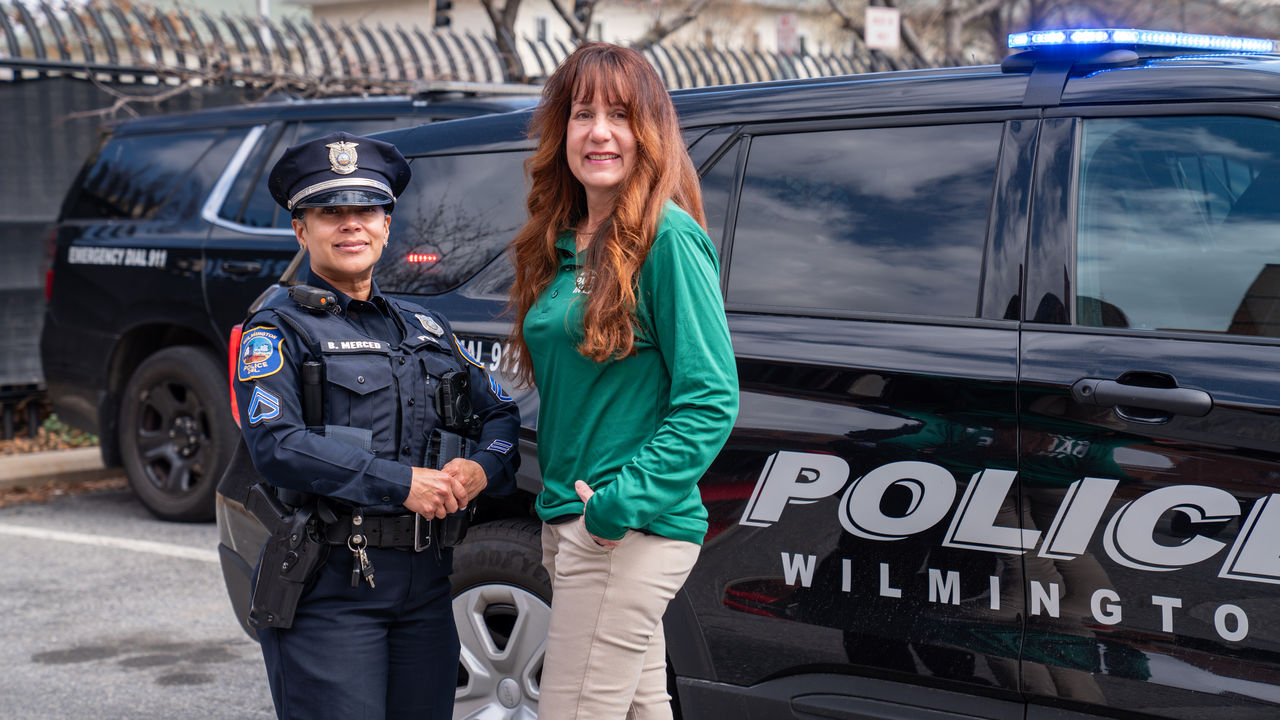
Social Drivers Screening
It is helpful to know the challenges our patients face to better serve them and achieve optimal health outcomes. ChristianaCare has developed and administers a social drivers of health screening instrument for patients.
In FY2024, ChristianaCare screened 12,227 patients in primary care practices through a self-administered screening. Additionally, acute care connectors screened 12,144 admitted patients in our two hospitals in Delaware. Positive screeners were sent to our Care Connectors for social care support.
Unite Delaware, Roundtrip, and Medical Legal Partnership
To address social need, ChristianaCare utilizes Unite Delaware, an electronic care coordination network. It is a free resource for any community-based organization to help connect Delawareans to available resources. In FY2024, ChristianaCare caregivers connected 3,622 individuals to the Unite Delaware platform and sent 8,173 referrals on their behalf to community organizations.
ChristianaCare is partnered with Roundtrip, an online booking platform, to provide transportation to medical services for eligible patients who have a transportation barrier. In FY24, 14,273 rides were provided to patients through Roundtrip.
ChristianaCare partners with the Delaware Community Legal Aid Society, Inc. to offer the Medical Legal Partnership, which assists primary care patients who are at or below 400% of the Federal Poverty Level with the mitigation of civil legal hardships. Patients receive assistance from the MLP to avoid eviction, successfully reinstate benefits, and file protection from abuse (PFA) orders, among other civil needs. In FY2024, a total of 80 new legal matters for 62 new unique clients were addressed.
Community Investment Fund
At ChristianaCare, we recognize that community organizations are serving our communities in ways that have a positive impact on health. We launched the Community Investment Fund in 2019 to support their work. Since launch, ChristianaCare has provided more than $5.6 million to 64 organizations addressing social, behavioral, and environmental health factors shaping community health.
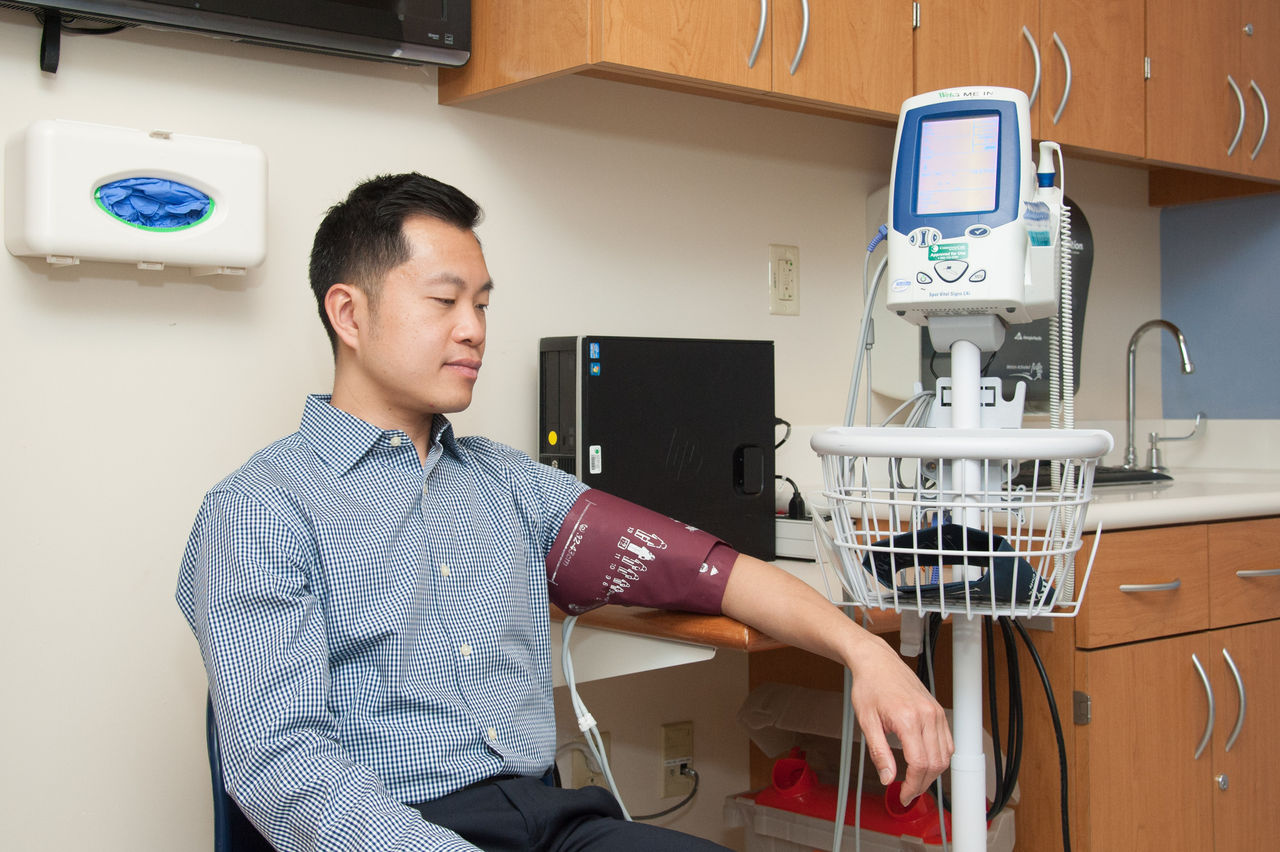
Reducing the Impact of Violent Crime
Hospital Based Violence Intervention Program (HVIP)
In recognition of violence as a public health issue, ChristianaCare operates a hospital-based violence intervention program to support patients impacted by community violence. ChristianaCare enrolled 83 patients in this program in the last fiscal year and partnered with Nemours Children’s Health to work towards providing their eligible patients the opportunity to participate in our program.
Stop the Bleed
Stop the Bleed is a national awareness campaign that empowers bystanders with the knowledge and tools they need to recognize and stop life-threatening bleeding. In fiscal year 2024, ChristianaCare’s Trauma Department caregivers provided 54 Stop the Bleed trainings to 856 individuals at ChristianaCare campuses, schools and community centers throughout Delaware.
The Trauma Department also makes available free gun locks to promote the safe storage of guns. ChristianaCare is the only adult Level 1 Trauma Center in Delaware and treats over 200 gunshot wound patients a year. We recognize the importance of encouraging safe storage of guns.
By the Numbers
Total amount of FY2024 community benefit expenditure, not including unreimbursed Medicaid was $197,619,814. Refer to our FY 24 Community Impact to see community benefit costs.
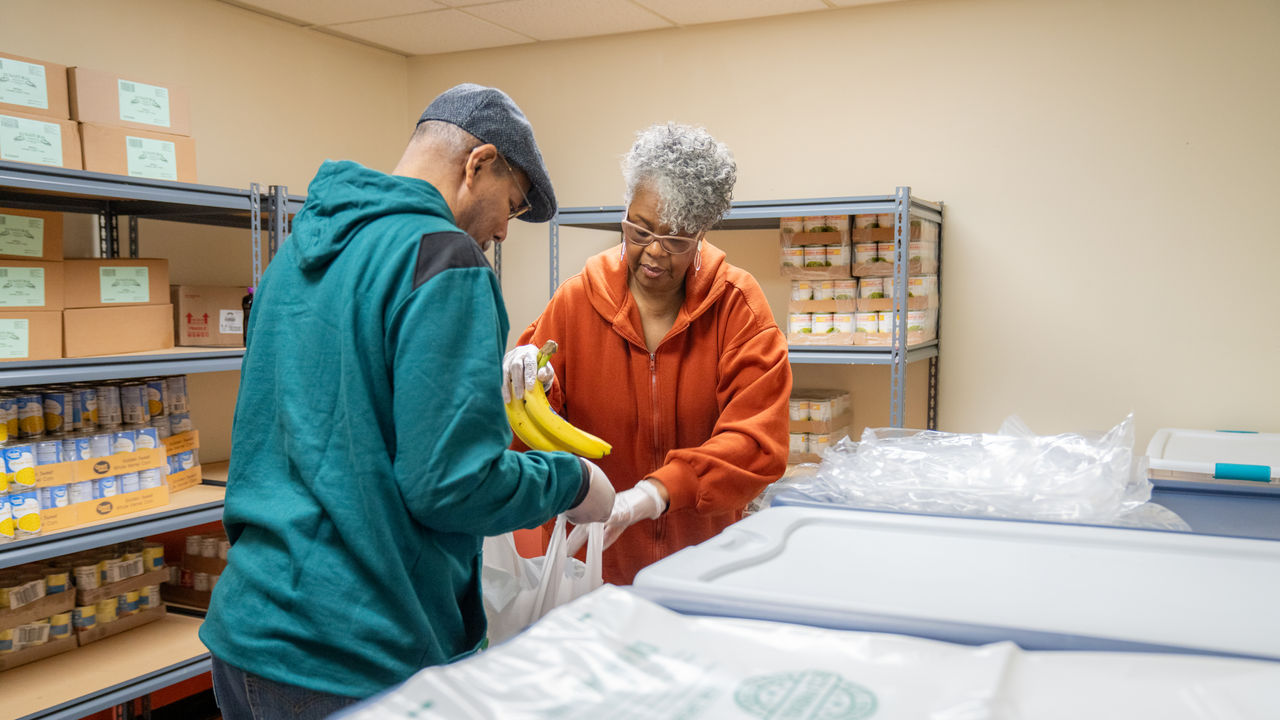
Supporting Our Community
In FY2024, ChristianaCare provided $1,861,240 in community benefit and community building funding to community-based organizations to support their efforts addressing community need.
AIDS Delaware, Inc.: $25,000
Bayside Community Network, Inc: $70,000
Children & Families First: $75,000
Cornerstone West Community Development Corporation: $66,500
DCF Healthy Communities Delaware LLC: $25,000
Deep Roots, Inc.: $69,747
Delaware Business Roundtable Education Committee: $40,000
Delaware Center for Justice: $75,000
Delaware Coalition Against Domestic Violence: $100,000
Delaware College Scholars: $105,000
Delaware Humanities Council, Inc. $13,761
Delaware Interfaith Power & Light: $55,900
Delaware Technical & Community College: $75,000
Good Neighbors Inc.: $75,000
Green Beret Project, Inc.: $75,000
Habitat for Humanity of New Castle County: $200,000
HBCU Week Foundation, Inc.: $132,625
Healthy Food for Healthy Kids, Inc.: $24,465
Housing Alliance of Delaware: $3,000
One Village Alliance: $4,000
Project New Start, Inc.: $75,000
St. Patrick’s Center, Inc.: $75,000
Sussex County Habitat for Humanity: $75,000
The Resurrection Center: $21,532
United Way of Delaware: $100,000
Wilmington Alliance, Inc.: $45,000
Wilmington Neighborhood Conservancy Land Bank: $14,400
YMCA of Delaware: $75,000
YWCA Delaware Inc.: $70,310
